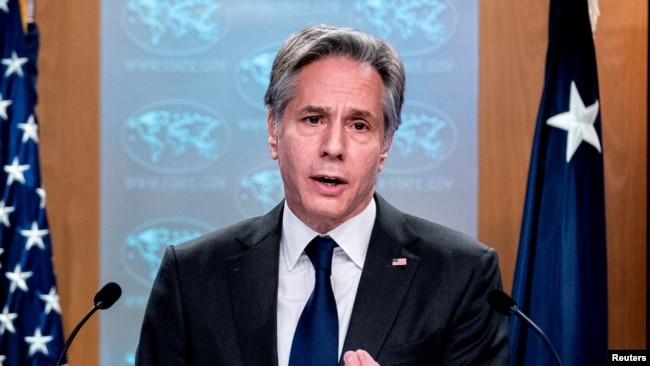[ad_1]
Talks between US and Russian diplomats will begin in Geneva on Monday, VOA’s Patsy Widakuswara reports.
after a few weeks of stalemate over the deployment of Russian forces near the border with Ukraine.
Military exercises and the mobilization of Russian forces along the border with Ukraine will serve as the backdrop for the US-Russia talks in Geneva on Monday, led by Deputy Secretary of State Wendy Sherman and Russian Deputy Foreign Minister Sergei Ryabkov.
Moscow has made numerous demands, including reducing NATO’s presence in Eastern Europe and Ukraine’s non-membership – demands that are unacceptable to the United States and Europe.
“It is clearly part of the scenario. They submit a list of completely inadmissible claims and then claim that the other party has not committed, to use this as a kind of justification for aggressive actions. But the reality is that Russia knows full well what is unacceptable. However, there are areas, subjects and issues on which we can engage, engage in dialogue and strive to improve overall security. “, said US Secretary of State Antony Blinken.
Russia says it is not preparing to invade neighboring Ukraine, and insists NATO enlargement is a threat to its security.
“Not even an inch to the East, we were told in the 1990s. And what happened? We were shamelessly deceived “, said Russian President Vladimir Putin.
The first round of talks looks set to serve more to present the dispute and is not expected to produce a secure outcome for Ukraine.
“I do not think anyone knows exactly what President Putin has in mind for Ukraine. “I think the Biden administration has done its best to unite the allies in coordinating policies, signaling to Russia that it intends to impose much stronger sanctions than before.”, says John Tefft, Former US Ambassador to Russia and Ukraine.
As Mr Putin tries to keep his focus on Ukraine, anti-government protests in Kazakhstan, another neighbor of Russia, have killed dozens of people and injured hundreds more.
Moscow has sent military forces to help quell the unrest, following a request from Kazakh President Kassym-Jomart Tokayev. It is not clear why Mr. Tokayev turned to Moscow for help, Secretary of State Blinken told VOA.
“However, I think one lesson from history is that once the Russians have entered your house, it is sometimes very difficult to get rid of them.”, said Secretary Blinken.
The White House has denied having drafted options for withdrawing US forces from Eastern Europe ahead of the talks. Following the Geneva meeting, NATO and the Council with Russia will meet in Brussels on 12 January. Further talks in a wider format, involving the United States, NATO, Russia, Ukraine and other former Soviet countries, will continue in Vienna on January 13./VOA
top channel
[ad_2]
Source link
















